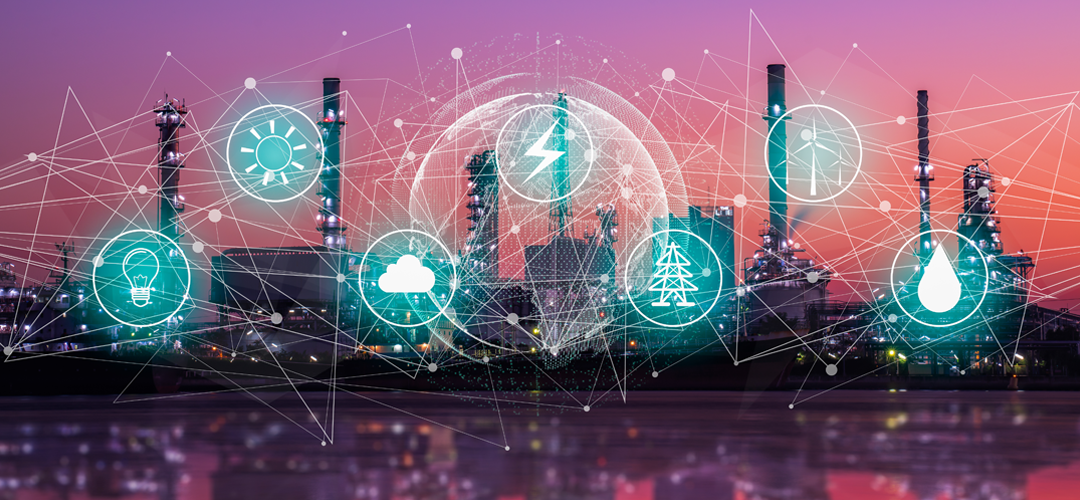Energy innovation is key to the future of industries. Basically, because the world will need more and more demand to build products and services. However, the ecological aspect and care for the planet must also be considered. Here we tell you about the role of technology in all this.
The importance of energy innovation in the coming years
According to the International Energy Agency (IEA), energy expenditure could rise by as much as 25% by 2040. This is explained by the fact that some production powers, such as India and China, will have to produce more in the face of humanity’s needs (DW, 2018).
In any case, there is no need to be alarmed for the time being. According to the same institution, in 2020 global energy demand plummeted by 5.3%, as a result of the pandemic and changes in people’s habits (Cronista, 2021).
Thus, it should be considered that the innovation taking place in the energy sector is supported by 3 dimensions: technology, business and regulation (IDB, 2019). Perhaps one of the most important developments has to do with the Paris Agreement, which envisions an energy transition in the future. The idea is that companies and states can incorporate different mechanisms to generate renewable energies. That is, for the world to start using other energy sources (United Nations, 2018).
Consequently, the various creations of the energy industry are justified by the fight against climate change. As technologies are playing a key role in this process, here we will tell you about the main transformations in the industry.
The main technologies of the energy industry
While there are many more, energy storage batteries, solar power and green hydrogen are the most prominent technological transformations in the industry. Here’s everything you need to know about them.
Battery-based storage systems
One of the most important innovations is battery-based energy storage. It is known as Battery Energy Storage System (BESS) and can be key to optimizing energy storage. This technology is used to conserve renewable energies, such as wind and solar.
A clear example of this innovation refers to the company Iberdrola. By 2025, this company will seek to generate €75 billion in investment on energy storage. Therefore, new containers are being created to store energy for use in times of need.
This development can be very useful in the electricity sector. In this sense, if there is a problem in the connection that prevents the light from reaching the houses, this backup system that is charged with renewable energies can be used (Iberdrola, 2020).
Thus, improving the battery system can be useful in different scenarios. A case in point is the hydroelectric pumping system. This technology makes it possible to store water at times of lower demand to take advantage of it when it is most needed (El Periódico Extremadura, 2019).
Sunlight
This element is essential to think about the possible economic development that energy innovation implies. The idea is to break with the prejudice that alternative energies are much more expensive than traditional ones.
As a result, many companies are launching solar-powered products on the market. These companies anticipate growth in demand for this kind of energy and present novel ideas that work with this resource (Deloitte Insights, 2019).
There are several outstanding examples that are a real innovation for the industry. At the state level, the Netherlands created the “SolaRoad”, a street that generates energy from sunlight. This is a street located in Amsterdam which, in its first 6 months, contributed 3,000 kWh. To understand the dimension, this is the electricity supply needed per family for one year (ESF Project, 2018).
In the private sector, the Canadian company WeWi Telecommunications launched a solar laptop. As a major novelty, this device only requires two hours in the sun to charge. These functions last about 10 hours, as it incorporates solar panels that are behind the screen (Geek Group, 2018).
Nor should we forget the automotive industry. Although the alternative to traditional fossil fuels is believed to be conventional electricity, there are also prototypes for cars to run on solar energy. At the same time, this would imply solving the problem of the high recharging time of electric vehicles.
For example, some vehicles such as the Nissan Leaf and Toyota Prius include solar panels. The aim is to generate energy to support some car functions, such as the stereo or climate control. Consequently, the main innovation of the future could be for these to be powered by sunlight (La Vanguardia, 2019).
Green hydrogen
Green hydrogen must be understood as an alternative innovation to traditional fuels. In case you don’t know, it’s a resource that can change the energy industry. As consumers demand more clean energy, green hydrogen could be key to several sectors (MIT, 2021).
Also known as renewable hydrogen, green hydrogen is an energy carrier. That is, it serves to move energy from one side to the other, in this case, through water. Therefore, it is created through renewable sources by breaking down water molecules into oxygen and hydrogen (BBC, 2020).
What is relevant is that producing it means not emitting carbon dioxide, which can be useful in industry, transportation and electric power generation. For example, in the food industry it is used to hydrogenate artificial oils, in the transportation industry it is used to supply all types of vehicles and in the energy industry it would work for heating systems (Chequeado, 2021).
Green hydrogen is seen as one of the main investment options for countries and companies. For this reason, the European Union has committed to invest US$450 billion in this resource. Even companies such as Repsol, BP and Shell have also launched some projects where they contemplate their innovation (BBC, 2021).
In conclusion, you will surely see that there are different technologies and ideas that are enabling great innovation in energy. What is essential is that the industry continues to improve them. In this way, the planet, consumers and companies can benefit, as they will take care of the planet and improve their services.






